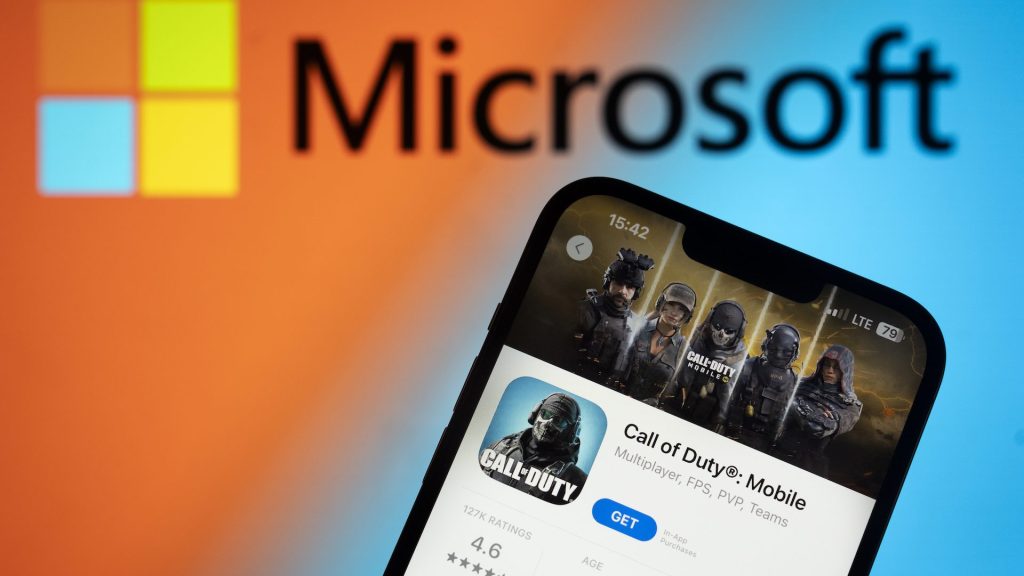After a prolonged antitrust tussle, Microsoft’s near-two-year attempt to buy gaming giant Activision is finally happening, after the U.K.’s Competition and Markets Authority (CMA) accepted a restructured proposal that addresses the CMA’s concerns about Microsoft dominating the cloud gaming market.
The crux of Microsoft’s concession to get the deal over the line lies squarely in Activision’s cloud-streaming rights, which rather than being sold to Microsoft, will in fact go to Ubisoft. The French video game publisher will garner Activision’s cloud-streaming rights for all PC and console games for the next 15 years, though this will only apply to markets outside the European Economic Area (EEA). Within the EEA, Ubisoft will receive a “non-exclusive licence to sell, distribute and sublicense entitlements to play cloud streaming versions of Activision’s games.” This means that Microsoft too will be able to access cloud-streaming rights for Activision games in Europe.
“With the sale of Activision’s cloud streaming rights to Ubisoft, we’ve made sure Microsoft can’t have a stranglehold over this important and rapidly developing market,” CMA chief executive Sarah Cardell said in a statement. “As cloud gaming grows, this intervention will ensure people get more competitive prices, better services and more choice. We are the only competition agency globally to have delivered this outcome. ”
Microsoft (finally) closes Activision deal
Microsoft first announced plans to buy Activision in a gargantuan $68.7 billion deal way back in January, 2022. The move would essentially make Microsoft the third-largest gaming company globally by revenue (behind Tencent and Sony), giving it control over mega-franchises such as World of Warcraft and Call of Duty.
With the European Commission (EC) eventually approving the deal with a few conditions, and the Federal Trade Commission (FTC) in the U.S. unable to block the deal despite its best efforts, the U.K. has remained alone in the regulatory realm as it steadfastly stuck to its guns in preventing the acquisition from completing. In April, the CMA concluded that the deal would “substantially weaken competition” and would create “…the most powerful operator” in the cloud gaming market.
The CMA has argued that Microsoft’s existing market advantage in cloud gaming is due to the proliferation of Windows and its “significant cloud infrastructure” business, a position that would enable it to build on a market share that already sits at between 60-70%.
It’s worth noting that Microsoft reached various deals to keep Activision games on rival platforms, including Nintendo, Sony and Steam for a 10-year period. But the CMA asserted that Microsoft’s proposals simply couldn’t replace the current “competitive dynamism.”
Back in August, Microsoft offered some concessions as it pushed to get the deal over the line, offering to divest the cloud streaming rights for all current and future Activision games to Activision rival Ubisoft. And last month, the U.K. gave the strongest indication yet that this went much of the way toward resolving its concerns, noting that it “substantially addresses previous concerns and opens the door to the deal being cleared.”
And now, the CMA has seemingly gone all in on the deal, going as far as to sound semi-promotional of the acquisition, calling Microsoft’s concession a “gamechanger that will promote competition.”
On the one hand, the CMA and — by extension — the U.K. is patting itself on its proverbial back for getting Microsoft to make these changes. But on the other hand, it’s also super-critical of Microsoft’s tactics throughout the whole acquisition saga that was some 21 months in the making.
“Businesses and their advisors should be in no doubt that the tactics employed by Microsoft are no way to engage with the CMA,” Cardell said. “Microsoft had the chance to restructure during our initial investigation but instead continued to insist on a package of measures that we told them simply wouldn’t work. Dragging out proceedings in this way only wastes time and money.”































Comment